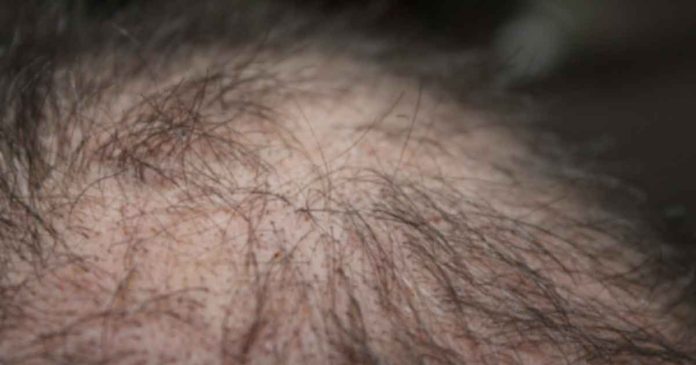Taking Vitamin D Help Treat Hair Loss? Hair is every man or woman’s crowning glory. Healthy hair can increase our self-confidence and can even find us a good job and make us approved for a job promotion. This is why baldness in men and hair loss in women leads to embarrassment, a thing that further leads to worries and to endless purchases of various supplements and hair care products that are really not that effective. Some even have horrible side effects!
The quest for that effective hair growth supplement is on!
Recently, there are studies which have also dwelt on the effects of vitamin D in the treatment of hair loss. In this article, we will review scientific evidence to this claim, and also review facts about the benefits of vitamin D to the hair.
What is Vitamin D?
Vitamin D is an essential nutrient that assumes a job in many body processes A deficiency of Vitamin D may cause various health issues, including baldness.
This vitamin is a basic nutrient. It reinforces our immune system and also helps us avoid sickness. It is additionally vital for bone health. Some studies recommend that a lack of vitamin D can cause heart disease, depression and also cancers.
Vitamin D additionally assumes an important role in the development of quality hair, and an absence of this nutrient has been connected to alopecia, otherwise called spot baldness.
Roles in the body
Our essential source of vitamin D is the sun, which is the reason why after some time it is alluded to as the “sunshine nutrient”. We can likewise get vitamin D from foods abundant in nutrients, for example, fish, fish liver oil, eggs, dairy, and through supplements.
D vitamin is a fat-soluble nutrient that is normally present in a few foods, and may be available as a dietary supplement. It is likewise produced in the body when ultraviolet rays from daylight strike the skin and trigger vitamin D synthesis.
Vitamin D acquired from sun exposure, nutrition, and supplements is normally inert and should encounter two hydroxylations in the body for activity. The first process happens in the liver and thus changes over vitamin D to 25-hydroxyvitamin D [25(OH), otherwise called calcidiol. The second process happens in the kidney and forms the physiologically active 1,25-dihydroxyvitamin D [1,25(OH)2D], otherwise called calcitriol.
Vitamin D enhances
Vitamin D enhances calcium absorption in the gut and keeps up with satisfactory levels of serum calcium and phosphate to bring about bone mineralization and to counteract hypocalcemic tetany. It is likewise required for bone development and bone repair by osteoblasts and osteoclasts. Without adequate vitamin D, bones can become thin, weak, or deformed. Vitamin D prevents rachitis in kids and osteomalacia in grown-ups. Together with calcium, vitamin D likewise protects more adults from osteoporosis.
Regarding the benefits it gives to the body, Vitamin D’s fundamental role is to enable the body to ingest calcium and phosphorus to keep the bones strong. It likewise has a key function in cell modulation and in the regulation of the immune system, while it also plays an important role in the hair growth cycle. For hair follicles to stay healthy, vitamin D is required along with other key nutrients. If there is vitamin D deficiency, hair will also become rough and there may be reduction hair follicles, causing baldness.
Does Vitamin D inadequacy cause balding?
The latest studies have focused on women with hair loss, and indicates that those women encountering hair loss had much lower vitamin D levels than average people. Moreover, expanding hair loss and disease seriousness can cause vitamin D levels to lessen further. However, these studies are still in its beginning stages, and despite the fact that there is solid proof linking vitamin D and hair loss and with evidence that vitamin D deficiencies exist in hair loss sufferers, there still isn’t solid proof to recommend that vitamin D can treat baldness.
Vitamin D works next to various minerals and vitamins, including iron, vitamin C and biotin, which are also indispensable in the hair development cycle and which are important for hair growth. VitaminD invigorates hair follicles, so an insufficiency may prompt baldness.
Vitamin D Help Treat Hair Loss
The effects of Vitamin D on hair
Vitamin D assumes a job that gives rise to new hair follicles. Hair follicles are the little pores from which new hairs develop. Along these lines, getting satisfactory levels of vitamin D can thus bolster hair development and regrowth.
Vitamin D insufficiency
Symptoms of low Vitamin D levels may include:
Changes in disposition, including depression and anxiety
Chronic pain
Constant fatigue
Decreased endurance
Frequent fractures
Infertility
Loss of bone thickness
Muscle weakness
New or exacerbating hypertension
Slow wound-healing
Inadequate light or not eating enough foods with supplements and vitamin D are the most broadly perceived causes behind vitamin D deficiency.
Individuals with health problems will encounter symptoms of the underlying cause and that of vitamin D insufficiency, as well. Certain medicines may likewise make the body separate vitamin D before it is digested. Medicines that may cause vitamin D insufficiency include:
Anticonvulsants
Antifungals
Drugs for HIV
Glucocorticoids
Ways to increase Vitamin D levels
The National Institutes of Health suggests that you should have healthy levels of vitamin D, through diet and daylight exposure, and that you should only use supplementation if necessary.
While there are various strategies for treating vitamin D inadequacies, it is recommended that vitamin D levels be corrected through natural means. Any plans towards increasing the intake of vitamin D, or treating vitamin D inadequacy, ought to be done with a nutritionist. There are many components that affect the amount of vitamin D that can be acquired through UVB exposure including:
Cloud cover
Skin melanin content
Smog/pollution
The angle of the sun
The length of the day
The time of day
The time of year
The use of sunscreen
Foods High in Vitamin D
Here are a few foods that are especially high in vitamin D, and these include cod liver oil, fatty fish, Portabella mushrooms, fish, tofu, eggs (yolk) and almond milk.
During the winter months, when sunlight is low, a decent vitamin D supplement should be taken. This will be particularly important if you have darker skin, as your body won’t get the amount of sunlight that your skin actually needs.





















